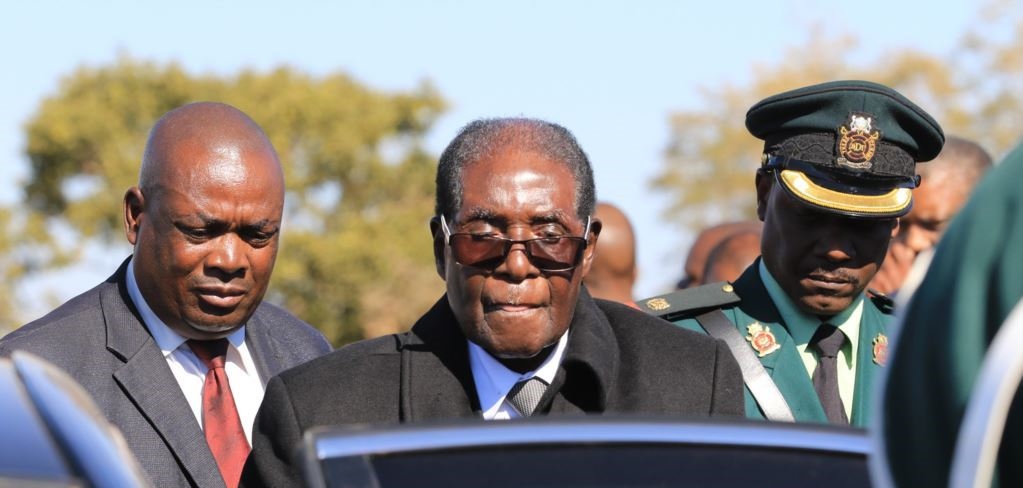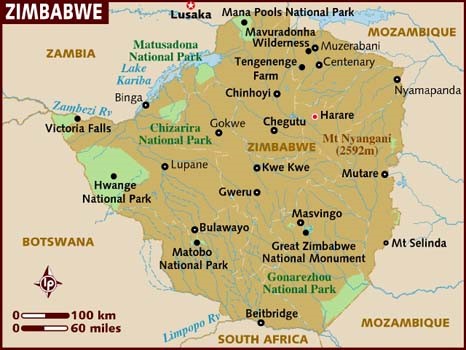What next for Zimbabwe?
November 27, 2017 | Expert Insights

The Zimbabwe military has announced that its operation to take over key institutions in the country including placing former President Robert Mugabe under house arrest, has ended.
The former leader who governed the region for 37 years announced his resignation recently.
Background
Robert Gabriel Mugabe is a Zimbabwean revolutionary and politician. He has been the President of Zimbabwe since 1987. Mugabe has been a key figure in the nation’s political landscape since the country got its independence from Britain in 1980. From 1980 to 1987, he led the nation as the Prime Minister. Prior to assuming the top leadership position in the country, he was the Chair of the Zimbabwe African National Union (ZANU) group from 1975 to 1980. Ideologically he is considered an African nationalist. He has identified as a Marxist-Leninist in the past, however has called himself a socialist since the 1990s.
Born in 1924, he became a prominent name in the nation during the 1970s through guerilla warfare. He even served time in prison between 1964 and 1974 for reportedly making anti-government statements. President Robert Mugabe dominated the country's political scene for almost four decades after independence from Britain in 1980.
Despite his initial popularity, Mugabe remains a deeply divisive figure in African politics. He is still hailed as a hero for fighting against imperialism and white minority rule. He has been derided as a dictator responsible for economic mismanagement, widespread corruption, anti-white racial discrimination, human rights abuses, suppression of political critics and crimes against humanity.
For multiple decades now Zimbabwe has struggled to feed its own people due to severe droughts and the effects of a land reform programme which saw the seizure of white-owned farms redistributed to landless black Zimbabweans which led to sharp falls in production.
In November 2017, the nation has been gripped in political crisis. Former Vice President of Zimbabwe, Emmerson Mnangagwa, alleged that President Robert Mugabe, has threatened his life. Mnangagwa, who was sacked by the President in November 2017, has fled to South Africa.
Shortly after the Vice President left the nation, the country’s army commander Constantino Chiwenga said on that the military would act if purges against former war liberation fighters did not cease. In addition, soldiers took over the headquarters of the state broadcaster ZBC and blocked access to government offices. However, the army insisted that this wasn’t a coup to replace Mugabe from power.

Analysis
After being in power for 37 years, Robert Mugabe resigned as the President of Zimbabwe with immediate effect in November 2017. For nearly eight days, he had resisted growing calls for resignation. Even party leaders had begun calling on him to step down to deescalate the situation.
Since his resignation, many citizens of the nation took to the streets to celebrate the end of the once powerful leader’s tenure. Mnangagwa, who is seen as Mugabe’s successor was conciliatory in his only public statement since the former president’s resignation. He said, “My desire is to join all Zimbabweans in a new era. In that new Zimbabwe it is important for everyone to join hands so that we rebuild this nation to its full glory, this is not a job for Zanu-PF alone but for all the people of Zimbabwe.” He has also vowed to return to Zimbabwe.
Details have since emerged that Jesuit priest Rev. Fidelis Mukonori played a key role in convincing Mugabe to step down. He was the key negotiator between Mugabe and the military. He said, “I'm a tough nut to crack. I've done this before. He is a debater, he is a thinker, he argues intelligently, he can philosophize. It was a question of making President Mugabe see what was happening in the country economically and politically at that time and what was at stake with regard to issues pertaining to the soldiers moving in.” As part of the deal he struck in order to resign, Mugabe will receive $10m payoff and immunity for his family. The 93-year-old’s $150,000 salary will also be paid until his death. Zimbabwe has also announced that February 21st (Mugabe’s birthday) will be henceforth celebrated as the Robert Gabriel Mugabe National Youth Day.
The Zimbabwe military has announced that its operation to take over key institutions in the country including placing former President Robert Mugabe under house arrest, has ended. The mission had been called “Operation Restore Legacy.” Reports have emerged that farms and houses owned by allies of Mugabe were attacked, army spokesperson Colonel said "looting and illegal occupation" of properties "will be met with the full wrath of the law".
Some experts have in addition voiced concerns that military’s actions may have superseded the constitution. Human rights lawyer Beatrice Mtetwa said, “What’s the point of having a constitution if you're not going to respect what's in the constitution? It seems there is selective application of the law depending on whether one has fallen out politically with those who are running things.”
Assessment
Our assessment is that this could herald a new era for Zimbabwe with new leadership and new ideas. There are those who have voiced concern that Mnangagwa, who was long seen as Mugabe’s loyal successor, will not change the way the governance is conducted in the country. Only time will tell if the country’s many problems, which includes corruption at the highest levels, will be curbed.








Comments